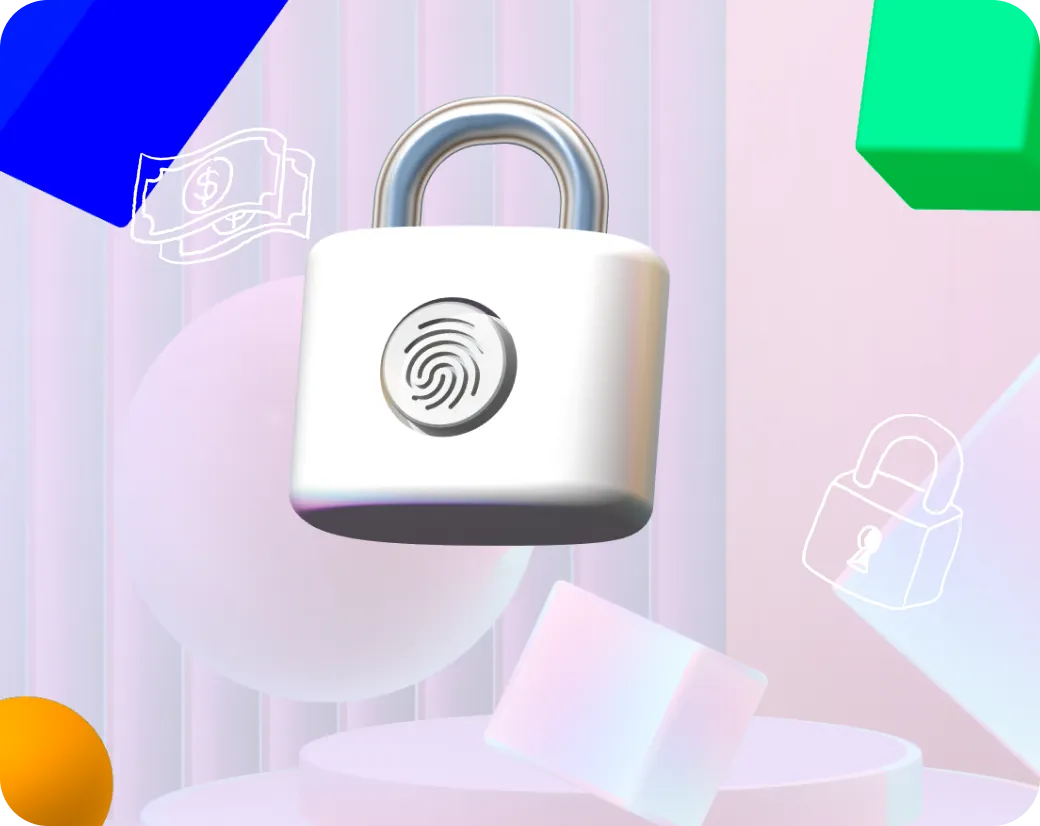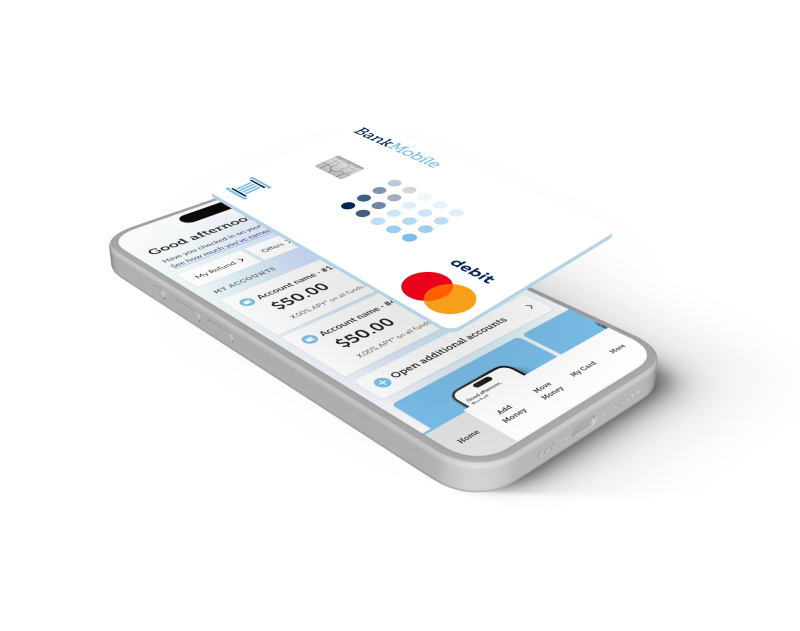The BankMobile Checking Account is an FDIC-insured, secure bank account. As your financial institution, we are dedicated to protecting your personal and financial information.

In 2023, scammers stole over $10 billion from U.S. consumers. Stay vigilant to ensure it doesn’t happen to you. As an account holder, we have your back! Here are ten ways you can help:
A secure checking account like the BankMobile Checking Account is designed to provide account holders with secure and convenient access to their money.

Whether it’s your checking or savings account, or both, our mobile app and web app help you manage your bank accounts with confidence. BankMobile is backed by industry-leading security features like 128-bit encryption and multi-factor authentication. Whether you prefer mobile banking or online banking, both of our platforms ensure your information is protected at every step.
Account holders are encouraged to review the terms and conditions to fully understand the safeguards in place and make the most of our reliable and secure banking solutions.
The BankMobile Checking Account is exclusively available to students who attend a college or university we partner with to disburse same-day financial aid refunds. After getting a school refund, the account can be used for life! BankMobile offers a variety of industry leading features such as cash back,1 the ability to earn interest, and two-day advance early payroll.2 Plus, all the essentials you’d expect from a modern bank account: bill pay, transfers, peer-to-peer payments, digital wallets, mobile check deposit, cash deposits, ATM access, a debit card on/off switch, and no overdraft fees.
Stay safe and stay vigilant!
1 See Cash Back Terms and Conditions for further details. Merchants listed in the Offers sections are in no way affiliated with BM Technologies, Inc., nor are they considered sponsors or co-sponsors of the program. All trademarks are the property of their respective owners. Earned cash back will be credited to your BankMobile Checking Account within ninety (90) calendar days from the time the qualifying transaction has been posted to your BankMobile checking account.
2 Funds from payroll-related direct deposits may be made available up to two days early. Early access to payroll deposits applies to the direct deposit of funds from your employer. Employer direct deposits vary and, as a result, it is not possible to guarantee early access to your pay. Factors that will affect this include the sender’s deposit description used and the timing of their submission of deposit. In order to provide this service, we generally post such deposits on the business day we receive notice that the deposit is scheduled, which may be up to two (2) business days earlier than the payer’s scheduled payment date. In general, benefit checks (direct deposit or otherwise) from the federal or state government will not be eligible for early access based on the parameters we use. As an example, benefits that generally would not receive early access include but are not limited to unemployment, retirement, pension, civil service, railroad retirement and veteran’s payments.